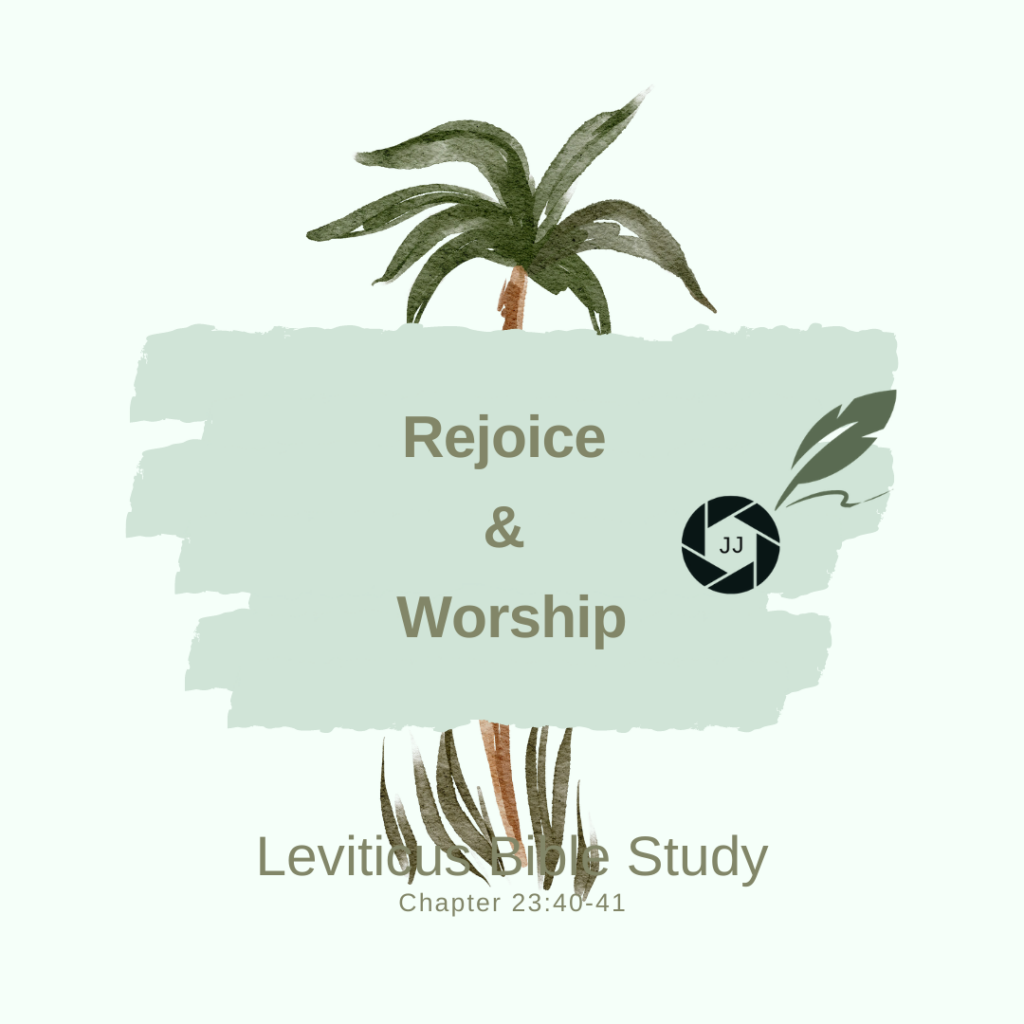
The twenty-third chapter of Leviticus talks about rejoicing. That there’s a way out of the emptiness and defeat of living without the love and wisdom of our Creator is cause for rejoicing. Celebration. Worship.
On the first day you are to gather the fruit of majestic trees, the branches of palm trees, and the boughs of leafy trees and of willows of the brook. And you are to rejoice before the LORD your God for seven days.You are to celebrate this as a feast to the LORD for seven days each year. This is a permanent statute for the generations to come; you are to celebrate it in the seventh month.
(Leviticus 23:40-41, Berean Study Bible). Our calling is to use our gifts to worship the Giver.
Again, the rehearsals described in Leviticus were preparation for the blind, deaf, and seeking—to see, to hear, and to make our hearts able to receive our Savior Who has come in the flesh (I John 4:2; II John 1:7).
The Twelfth Chapter of John provides us with another picture of palm branches—the blossoming of the prophetic word planted in the Mosaic Law, 5 days before the Passover feast.
12On the next day the great crowd having come to the feast, having heard that Jesus is coming into Jerusalem, 13took the branches of the palm trees and went out to meet Him, and were shouting: “Hosanna!” “Blessed is the One coming in the name of the Lord!” “And the King of Israel!”
(John 12:12-13). God sent His Word with spoken commands (John 10:18). The Word did not return empty-handed.
The first chapter of the Gospel of John says, “1In the beginning was the Word, and the Word was with God, and the Word was God. 2He was in the beginning with God” (John 1).
In the Gospel of Matthew, LORD Jesus clarifies, “17Do not think that I have come to abolish the law or the Prophets. I have not come to abolish, but to fulfill” (Matthew 5:17).
The Word of God will never return to God without accomplishing that for which God sent it (SEE, Isaiah 55:11) as the Son of God did not ascend to heaven before defeating hell and the grave, satisfying His reason for coming to us—fulfilling the perpetual demands of the Law.

